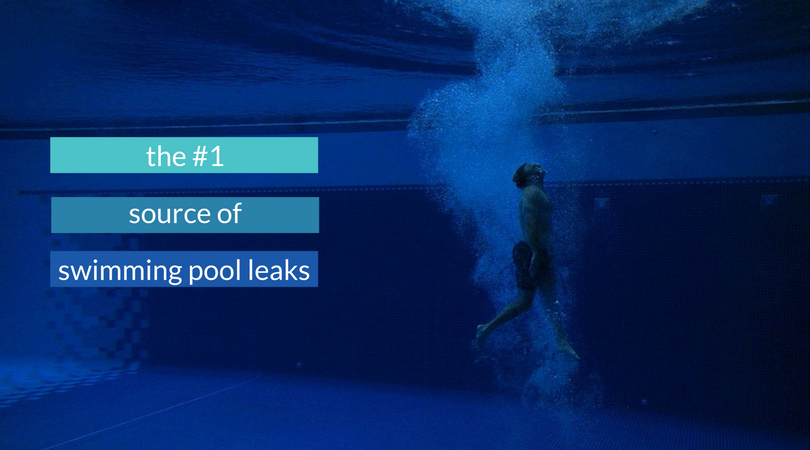
Plumbing is often responsible for a swimming pool leak. The plumbing system has several major parts that can come loose or break. This includes the intake lines and the return lines that carry water through the filtration system.
The main plumbing lines are underground or under the pool decking, and they may not be easy to reach. The pump assembly is much more accessible, and it is easy to check the lines where they connect to the pump system.
A loose main drain at the bottom of the pool or spa tub may be responsible for the plumbing leak. The drain has a vacuum system that pulls the water into the pipes leading to the filter when the motor is on.
The skimmer assembly sucks in water. The skimmer basket holds debris, preventing it from moving into the intake line. Check the basket and the intake line where it meets the filter system. You may find dirt stuck in small cracks near the skimmer assembly that can lead to leaks. Clean the skimmer basket to keep the intake line free of small leaves and twigs.
Check around the filter and pump area for water on the floor. This is an indication of a leak in this area where repairs are easy. A loose fitting on the hose connecting to the pump is easy to tighten. It is also easy to replace a worn impeller that drives the water through the system.
A professional leak detection and repair service is necessary for repairing a swimming pool leak from the plumbing system. Plumbing lines under the decking are difficult to check. Aquaman Leak Detection has their own patented ultrasonic system to pinpoint underground leaks. The entire decking does not have to be torn up to find and repair the leak. A PVC pipe may be rapidly repaired or replaced.
Your pump motor should also be inspected once a year before you turn it on. All parts should be working. Check the filter system and chlorinator. Using the right chemicals will prevent an alkaline build-up in the return and intake pipes.
The second most common place to check for a swimming pool leak is the pool's surface or shell. Vinyl pools are subject to tears. The surface should be checked for any minute tears that could expand.
Fiberglass pools rarely crack unless the surface is hit with a very hard object. This is rare in a pool filled with water. Gunite pools have a plaster surface that can crack. A red dye is used to find the cracks before they expand. A special epoxy will fill the cracks. Draining the pool is not necessary.
Shell or surface plaster cracks can also build at corners where steps are built into the pool. This can also be remedied with filler and a dab of plaster.
Leaks are not limited to swimming pools. Spa tubs that are stand-alone units also have pump system leaks. These are often easy to locate and repair. The pump and heating assemblies are located beneath the tub.
Contact Aquaman Leak Detection immediately if you suspect a plumbing leak. We can locate and repair the leak with one visit. Aquaman serves Brevard and 10 neighboring counties with same-day service.

With over 20 years of reputable experience finding leaks, owner Lowell Ball created a unique and patented leak detection system that accurately finds leaks without damaging property. We are so confident in our system and our workmanship, we offer the strongest warranty in the industry.
Aquaman Leak Detection Corporate
1275 South Patrick Dr, Suite A6
Satellite Beach, FL 32937
Owner Direct: 321.431.4784
844.766.5532 (844 POOL LEAK)
info@aquamanleakdetection.com
Office Hours:
9AM-6PM Mon-Fri
Emergency Service Available 24/7
Blog Comments